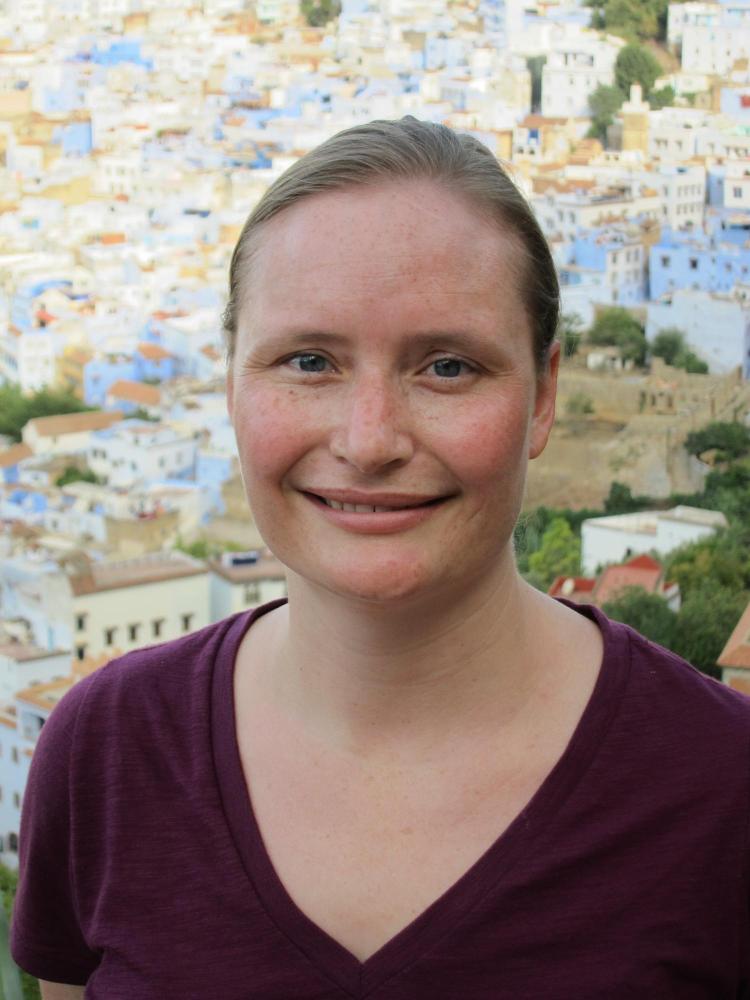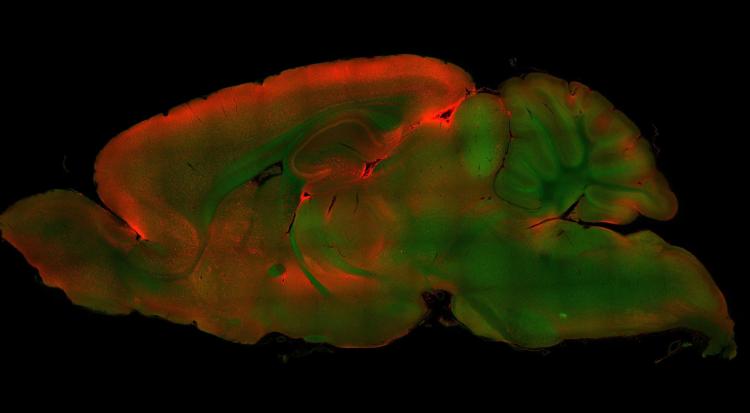Neuroscientist strives to crack the code on monogamy
CU Boulder researcher plans to use NSF award to continue her research on how some mammalian species are innately driven to form intimate relationships with others
Zoe Donaldson, a behavioral neuroscientist and assistant professor at the University of Colorado Boulder, has won a prestigious Faculty Early Career Development Program (CAREER) award from the National Science Foundation (NSF).
The CAREER award recognizes early career faculty who conduct valuable research while showcasing the potential to lead students by serving as academic role models in research and education.

At top of the page: Two voles nuzzle in a CU Boulder lab. Photo by Paul Muhlrad. Above: Zoe Donaldson
Donaldson was recognized in May with a $1.6 million award for her research on the brain’s innate disposition to form “pair-bonds,” or intimate monogamous relationships, with others.
“The NSF cares about this question because it is a fundamental question in evolution: How do you evolve monogamy? And we’ve broken that down to the more specific question of how do you build a brain that’s capable of forming pair-bonds?” Donaldson said.
To answer that question, Donaldson looked at the molecular and cellular differences in the brains of prairie voles and their cousin species, meadow voles.
Prairie voles form pair-bonds, or intimate life-long relationships, with other prairie voles who become their mating partners. Meadow voles, however, have multiple mating partners without ever forming a relationship with them.
“So we can very simply ask: What is different between their brains?” Donaldson said. “We can actually watch cells in the brain become activated as an animal is pair-bonding with their partner, or in the case of meadow voles, mating, but not pair-bonding, and ask: ‘How is this different?’”
Donaldson and her team do that by using a technique known as calcium imaging, where they can figure out how neurons function in the vole brains.
One of the differences that Donaldson is exploring is how prairie voles might store the memory of their mating partner in the reward circuits in their brains, making them feel good every time they see their partners again.
“The hypothesis would be that… there are neural signatures or activity patterns that are indicative of remembering the individual, but only in prairie voles do we see a signature that would basically link that memory to it being a sustained source of reward,” said Donaldson.
In a series of behavioral experiments, Donaldson and her lab observed how voles interact and bond with each other. First, they let a prairie vole bond with another vole, then separate the two between a lever-triggered door.
“We train them so that if they press (the) lever, they get to huddle with their partner for a while,” said Donaldson. When exposed to another vole they aren’t bonded with, “they actually get into a little bit of an aggressive bout, which is really common.”
Through these experiments, Donaldson and her team inferred: “Do you want to be with your partner; do you want to huddle with them; how hard are you willing to work; and how many times are you going to press that lever to get access to them?”
According to Donaldson, these behaviors and neural signatures in voles could reflect how humans form intimate relationships with other humans.
“I’ve had reporters in the past ask if this takes away the magic when you fall in love, and I would argue no,” said Donaldson. “I think it’s amazing… what your brain is capable of.”

A cross section of a vole brain that has been stained for a marker of neuronal activity (red) shows which neurons were active when the animal was interacting with its pair-bonded partner. Donaldson carried out this work in collaboration withChristine Denny at Columbia University. Photo courtesy of Zoe Donaldson.
For Donaldson, “the joy of science is the joy of discovery,” and guiding students in exploring the intricacies of the mammalian brain when forming intimate relationships is the “best part of my job.”
Along with the CAREER award supporting Donaldson’s research, the grant also provides a substantial educational component for CU Boulder students and beyond.
“There’s a data science course where the students are going to be working with datasets that we generate (in our research) ... They’re going to be learning about the molecular tools that we’re using in these voles, and they’re going to be proposing new experiments,” Donaldson explained.
Another component of the CAREER award is funding a pathway to get students into PhD programs with Metropolitan State University of Denver, a federally designated Hispanic serving institution.
“We’re essentially providing them genuine research experience here at CU because we’re an R1 (Research 1) university, and we can augment the training opportunities for how to actually get into graduate school,” Donaldson said.
This funding helps historically underserved students at MSU Denver by exposing them to the research process in more depth, along with exploring pathways to become researchers and scientists at CU Boulder, such as professional workshops on how to apply to graduate school.
“What I enjoy about teaching more generally is watching that sense of discovery emerge,” Donaldson said.
Donaldson earned her PhD in neuroscience from Emory University in 2009 and was a postdoctoral fellow at Columbia University. She joined CU Boulder’s faculty in 2016.

